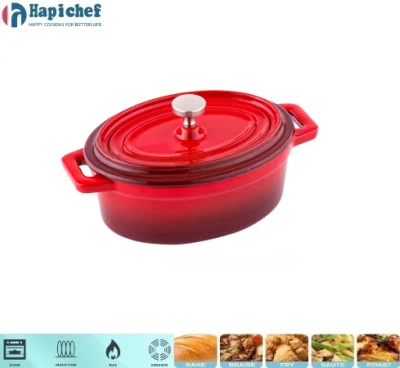Top Kitchenware Suppliers for OEM Products and Custom Solutions
OEM Kitchenware Suppliers A Comprehensive Overview
In today's global market, kitchenware is an essential component of any household. From cooking pots and pans to utensils and storage solutions, the demand for kitchen products continues to rise as people become increasingly conscious of cooking at home. One of the most effective ways for businesses to meet this demand is through Original Equipment Manufacturing (OEM). This article will explore the concept of OEM kitchenware suppliers, their advantages, and how to choose the right supplier.
What is OEM Kitchenware?
OEM kitchenware refers to products that are manufactured by one company but sold under another company's brand name. In this business model, a kitchenware supplier produces items according to specifications provided by the brand owner. This allows businesses to enhance their product line without the need for heavy investments in manufacturing infrastructure. Instead, they can focus on marketing and sales, leveraging the expertise of OEM suppliers to provide high-quality products that meet consumer needs.
Advantages of Using OEM Suppliers
1. Cost Efficiency One of the primary benefits of sourcing kitchenware through OEM suppliers is cost savings. Businesses can save on manufacturing and labor costs, as OEM suppliers typically have established operations and economies of scale that allow them to produce goods at a lower cost.
2. Expertise and Innovation Many OEM suppliers specialize in specific categories of kitchenware. Their industry knowledge and experience can lead to innovative product designs and developments. Businesses can capitalize on this expertise by offering unique products that may not be feasible for them to develop in-house.
3. Focus on Core Competencies By outsourcing manufacturing to OEM suppliers, companies can concentrate on their core competencies, such as marketing and customer service. This strategic focus can improve overall efficiency and customer satisfaction.
4. Flexibility OEM relationships provide a level of flexibility that allows brands to adapt quickly to market trends and consumer demands. With the ability to scale production up or down, companies can respond effectively to changing market conditions without the financial burden of maintaining excess inventory.
5. Access to Global Markets Many OEM suppliers operate internationally, providing businesses with opportunities to expand their reach into new markets. This can be particularly beneficial for brands looking to grow without significant upfront investments.
oem kitchenware suppliers

How to Choose the Right OEM Kitchenware Supplier
Selecting the right OEM kitchenware supplier is crucial for a business's success. Here are some factors to consider
1. Quality Standards Ensure that the supplier adheres to high-quality manufacturing standards. Request samples to assess the craftsmanship and durability of their products. Certifications like ISO or BSCI can also indicate a supplier's commitment to quality.
2. Experience and Reputation Research the supplier's background and industry reputation. Look for suppliers with a proven track record in producing kitchenware and positive customer reviews. Testimonials and case studies can provide insight into their capabilities.
3. Communication and Support Effective communication is key to a successful partnership. Choose a supplier that is responsive and willing to work closely with your team throughout the development process. This collaboration can help troubleshoot issues and refine product designs.
4. Customization Options If your brand has specific designs or features in mind, ensure that the OEM supplier can accommodate customization requests. A good supplier should be willing to adapt their manufacturing processes to meet your brand's unique needs.
5. Pricing and Payment Terms Compare pricing among potential suppliers, keeping in mind that the lowest price isn’t always the best deal. Evaluate the supplier's payment terms and assess whether they provide a fair balance between cost and quality.
Conclusion
Partnering with OEM kitchenware suppliers offers businesses a strategic advantage in today’s competitive market. By leveraging the benefits of cost efficiency, expertise, and flexibility, brands can enhance their kitchenware product lines and remain responsive to consumer demands. However, choosing the right supplier requires careful consideration of various factors, including quality, reputation, and customization capabilities. With the right partnership, businesses can successfully navigate the kitchenware market and thrive in a rapidly evolving industry.
-
Why Every Home Cook Needs a Cast Iron Meat PressNewsNov.12,2024
-
Unlock Perfectly Seared Steaks with the Cast Iron Meat PressNewsNov.12,2024
-
Master the Art of Cooking Thick Cuts of Meat with a Cast Iron Meat PressNewsNov.12,2024
-
How to Care for Your Cast Iron Meat Press: Tips for Longevity and PerformanceNewsNov.12,2024
-
How a Cast Iron Meat Press Enhances the Flavor and Texture of Your BurgersNewsNov.12,2024
-
Roasting Pan for Perfect MealsNewsNov.04,2024
-
Perfect Skillet for SaleNewsNov.04,2024
